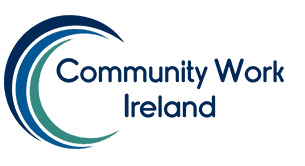SUBMISSION TO UN CESCR FOURTH REVIEW OF IRELAND
The lived experience of poverty, social exclusion and inequality must inform the Government’s approach to economic, social and cultural rights, an alliance of leading organisations in the Irish community and voluntary sector said today (08.02.2024), as it launched its Submission to the UN Committee on Economic, Social and Cultural Rights (UN CESCR) Fourth Periodic Review of Ireland.
The Submission draws on the collective expertise of 31 national organisations, representing a wide range of groups experiencing poverty, social exclusion and inequality, to provide a vital alternative perspective ahead UN CESCR’s examination of Ireland next week. It provides key insights into what must change in order to improve the lives of people whose economic, social and cultural rights are not respected, protected and fulfilled as they should be in Ireland.
The Community Platform draws the Committee’s attention to the lack of effective engagement with affected communities, and the organisations that represent them, in the design and implementation of policy, the need for greater Government accountability for its decision-making, and the critical role of and gaps in data and evidence in informing effective policy.
“This Submission offers an important counterpoint to what the Government will present in Geneva. We provide the Committee with our assessment of how Ireland is faring when it comes to our international obligations, and make concrete, evidence-based recommendations for tackling some of the immense challenges we face as a society. Our work with people and groups experiencing poverty, social exclusion and inequality gives a unique insight that must inform the Government’s approach to these issues,” said Paul Ginnell, Director of the European Anti-Poverty Network (EAPN) Ireland.
“We highlight the failure of successive Governments to properly address such major long-term challenges as poverty, health, education, employment and housing, which has resulted in deepening inequalities and hardship for many people, particularly those living on low incomes and from the most marginalised communities. We make concrete recommendations on structural issues hampering attempts to tackle poverty and social exclusion, including weaknesses in engagement and consultation with those affected and the organisations that represent them, failures in implementation of national policies and strategies, and the absence of accountability in Government decision making regarding policy and decision-making,” said Bríd O’Brien, Head of Policy and Media at the Irish National Organisation of the Unemployed said Ann Irwin, National Co-ordinator with Community Work Ireland.
“The Community Platform believes that unless the Government improves and strengthens the ways it currently engages with civil society and affected communities, it will continue to fail to find workable and effective solutions to existing and new challenges. We propose a new approach for how the Irish State can engage with the community sector and work jointly to devise and implement new solutions to difficult challenges, and make recommendations for new, innovative and more collaborative approaches that are dynamic and fit for purpose, maximise involvement and harness the expertise of organisations and communities,” said Ann Irwin, National Co-ordinator with Community Work Ireland.







